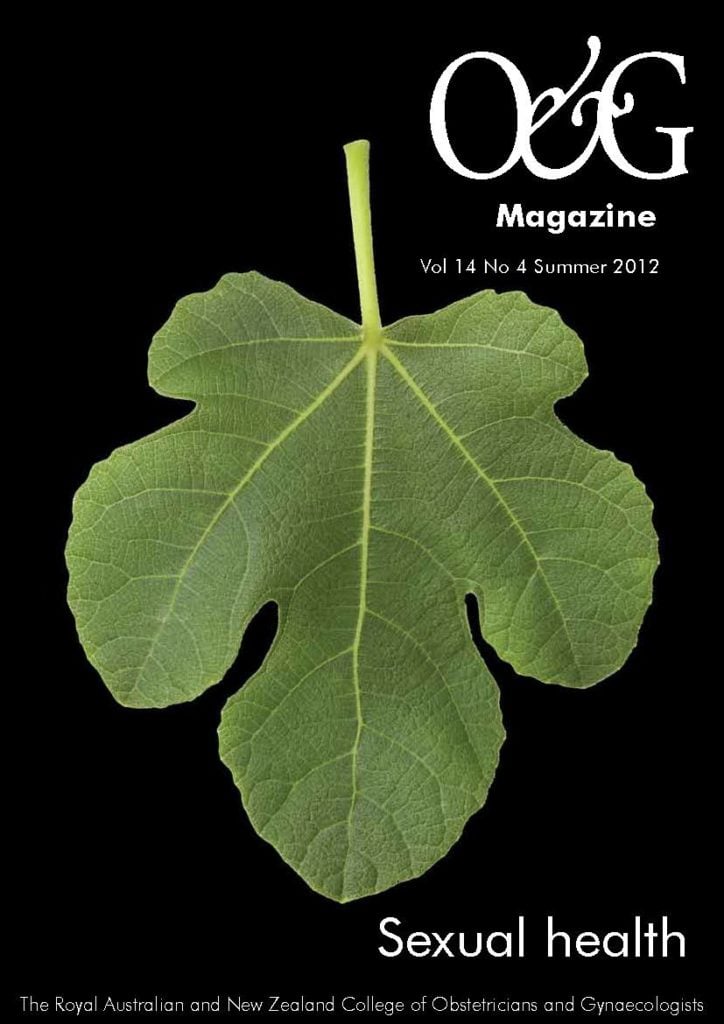Sexual and reproductive health issues in girls and young women with intellectual disabilities.
Sexual health is a state of physical, emotional, mental and social wellbeing in relation to sexuality; it is not merely the absence of disease, dysfunction or infirmity. Sexual health requires a positive and respectful approach to sexuality and sexual relationships, as well as the possibility of having pleasurable and safe sexual experiences, free of coercion, discrimination or violence.
So, as clinicians involved in women’s health, we are involved in ensuring that our patients achieve optimal sexual health and ensuring that they have access to appropriate and reliable contraception. How does this work for those women with intellectual disabilities?
In many respects, the answer to the question is that the care and principles are clearly no different. Yet, at other levels, the needs are actually different, just as they are individually different for each woman under our care.
For the families of young women with disabilities there may be a considerable level of anxiety about how they will cope with menstruation.1 For the young woman with a significant intellectual disability, reaching menarche may be a very distressing event. The unexpected appearance of blood from a body part that has never before bled can be distressing and disturbing. Some of this distress could have been prevented with education, but rather than some discussion in a classroom or by a female relative, this may have required repeated instruction and actual demonstration by other female family members of bloodstained pads – with demonstration and reiteration of the normality of this bleeding – and then the repeated demonstration of how to remove the bloodstained pads, dispose of them and trial runs or practice in wearing pads. Most mothers don’t do this for their daughter without a disability, yet this is what may be required to assist a young woman with an intellectual disability or an autism spectrum disorder. Quite different and challenging – yet the endpoint is no different to usual – trying to ensure that the young woman has an understanding of menstruation as a normal physiological process.
We manage heavy and painful menses as gynaecologists – trying to ensure that our patients’ quality of life, their participation in school, sport, work and social activities are not affected by their menses. We intervene if our patients have seizures or migraines with their menses, or have exacerbations of mood problems. So if our patient has an intellectual disability – the aims are the same – although the criteria of distress or what amount of menses disrupts their quality of life and participation in activities may be different.2 If menstruation is going to impact on her capacity to participate in social activities or swimming, or she is getting increased seizures at the times of menses – then we have a role in ensuring that factors relating to her reproductive physiology do not negatively impact on the young woman’s quality of life.
For the prepubertal girl with an intellectual disability, there is often family concern regarding the potential impact of menstruation. Some of the family concern arises from the recognition that their daughter is now at risk of pregnancy, sexual abuse and symptoms that will impact on her quality of life. This particularly applies if the mother has experienced heavy or painful menses.
Sexuality and the desire to explore this aspect of life is present in the majority of people and thus this applies to young women with intellectual disabilities. We have a responsibility to ensure that the sexual relationships are not abusive – so the level of disability between two young people having a sexual relationship probably needs to be similar. Access to contraception needs to be considered and planned, recognising that methods that require ‘remembering’, such as condoms and daily pills are probably not the most appropriate.
Consultation with families prior to menarche is helpful1,3 – to have the discussions regarding normal pubertal changes, normal development of sexual interests and normal adolescent (often) rebellious activities. However, this also gives you the opportunity to inform families and the young woman about the range of options that are available to ensure that menses will not have negative impact on their sexual and reproductive health – and that we are willing and able to assist. There are some resources available through agencies such as Family Planning. Most special development schools will run appropriate programs regarding sexual health and contraception. Nevertheless, families may still struggle to get access to reliable and accurate information. Having these consultations early, rather than several years after the family has struggled with menstrually related problems, is much easier.
Although requests for sterilising or permanent, irreversible procedures (hysterectomy, tubal ligation or endometrial ablation) still arise occasionally, they are only very rarely required.3,4 As they are considered special medical procedures, since 1992, following Marion’s case in the High Court of Australia5, special court or guardianship approval is required (the actual regulations are different in each state and vary for under and over 18 years old).
References
- Zacharin M, Savasi I, Grover S. The impact of menstruation in adolescents with disabilities related to cerebral palsy. Arch Dis Child.2010 Jul;95(7):526-30. Epub 2010 May 10.
- Savasi I, Spitzer RF, Allen LM, Ornstein MP. Menstrual suppression for adolescents with developmental disabilities. J Pediatr Adolesc Gynecol.2009 Jun;22(3):143-9.
- Grover SR. Menstrual and contraceptive management in women withan intellectual disability. Med J Aust; 176:108-10, 2002.
- Grover S, Brady S, Chondros P. Sterilisations in girls and young women: is it still happening? Aust N Z J Public Health; 26:273-5,2002.
- Secretary, Department of Health & Community Services v J.W.B. andS.M.B. (Marion’s Case)(1992) 175 CLR 218.






Leave a Reply